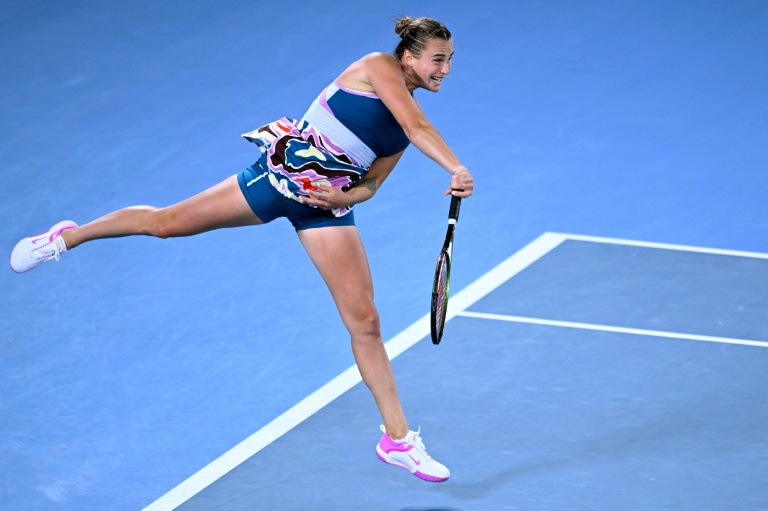
Melbourne (AFP) - Two of the biggest hitters in women's tennis go toe-to-toe when Aryna Sabalenka and Elena Rybakina clash in Saturday's Australian Open final in Melbourne.
Belarusian fifth seed Sabalenka is in the form of her life and on the brink of a maiden Grand Slam crown.
The 24-year-old comes into the showpiece under the Rod Laver Arena lights on a 10-match unbeaten streak in Australia, having won the Adelaide International and is yet to drop a set in 2023.
She has defeated Wimbledon champion Rybakina in all of their three previous meetings.
Rybakina, 23, has coolly moved through the draw, unfazed by the snub of her opening match being shunted out to the wilderness of Melbourne Park's Court 13.
The Russian-born player, who now represents Kazakhstan, has accounted for three Grand Slam champions on her way to the final, including world number one Iga Swiatek.
Jelena Ostapenko and Victoria Azarenka followed on the back of Rybakina's dominant serve, which has smacked down 45 aces so far, more than any other.
Rybakina's graceful power appears effortless at times, emanating from clean ball-striking and immaculate timing.
Sabalenka is more brutal, her muscles generating spin and driving the ball through the court.
It is a trait Sabalenka has always possessed but was often stymied by her fractious nerves.
But not this year as she finally won a Slam semi-final at the fourth attempt against the unseeded Pole Magda Linette.
Sabalenka has turned it around by working tirelessly last year with her coaches, a sports psychologist and a biomechanical specialist.
"I was trying to do less screaming after some bad points or some errors," Sabalenka said."I was just trying to hold myself, stay calm, just think about the next point.
"I'm still screaming 'C'mon!' and all that stuff.Just less negative emotions."
'Deal with it'
Sabalenka is now so confident of handling her emotions -- demonstrated as she smoothly fought back from 2-0 down in the first set against Linette -- that she has dispensed with her sports psychologist.
"I realised that nobody other than me will help," Sabalenka said.
"I spoke to my psychologist saying, 'Listen, I feel like I have to deal with that by myself because every time hoping that someone will fix my problem, it's not fixing my problem.'
"I just have to take this responsibility and I just have to deal with that."
Rybakina, the 22nd seed, will be full of confidence heading into her second major final in the past seven months.
She's lost only one set during the Australian Open fortnight, and that was against last year's runner-up Danielle Collins.
But if her first serve deserts her, Rybakina can come under pressure, as happened against the combative Azarenka in the semi-finals when she was broken three times.
But she is more than just a big serve and has enough all-court game to ward off most danger -- her wide reach and ability to hit winners off both wings enabling her to get out of trouble.
With one major victory already achieved, Rybakina believes the experience will give her an edge.
"Everything was new at Wimbledon," Rybakina said."Now I more or less understand what to expect.







